MercoPress. South Atlantic News Agency
Antarctica
-
Friday, October 8th 2021 - 17:14 UTC
Last Man Standing: A talk with the captain who spent 688 days on board a longliner
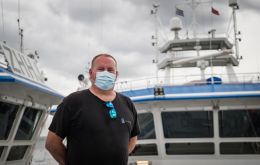
688. That is the number of days that the captain of the FV Nordic Prince, Arvid Olai Mjønes, spent on board the vessel without returning home. On the final leg of the voyage, the Norwegian captain spoke to MercoPress on board the vessel in the port of Montevideo and shared his experience during the Patagonian Toothfish fishing season in the Ross Sea during the Covid-19 pandemic.
-
Friday, October 8th 2021 - 09:44 UTC
Antarctica cruises Atlas Ocean Voyages will operate from Ushuaia, Tierra del Fuego celebrates
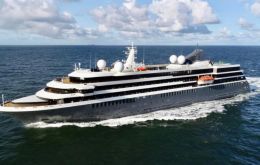
An Antarctica cruise company, Atlas Ocean Voyages will begin operating from Ushuaia, the capital of the extreme south Argentine province of Tierra del Fuego. According to local media reports, the first call out of fifteen will take place next November.
-
Friday, October 8th 2021 - 09:10 UTC
Falklands' decisive in supplying Covid-19 vaccines to BAS Antarctic base Rothera
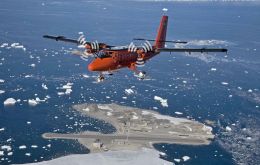
The BBC has reported that nine months after it was rolled out, the AstraZeneca Covid vaccine has finally reached the Antarctic. It was flown in, via the Falkland Islands, this week to immunize the 23 staff members who've been keeping the British Antarctic Survey, BAS, Rothera research base running through the polar winter.
-
Friday, October 8th 2021 - 09:00 UTC
Protocol on Environmental Protection to the Antarctic Treaty 30th anniversary

By Professor Klaus Dodds (*) – The Protocol on Environmental Protection to the Antarctic Treaty was agreed in 1991 and came into force in 1998, once it had been ratified by all 26 (currently 28) Antarctic Treaty Consultative Parties. Professor Klaus Dodds explores the extensive and delicate negotiations that made this possible.
-
Wednesday, October 6th 2021 - 08:38 UTC
Ross Sea region MPA serves as a valuable model for others in region
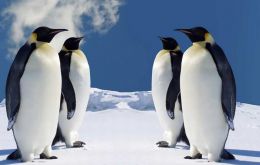
By Andrea Kavanagh (*) - On October 28, 2016, global leaders made history by designating one of the most productive and healthy stretches of the ocean as the world’s largest marine protected area (MPA).
-
Tuesday, October 5th 2021 - 18:10 UTC
Amateur radio call signs: VP8 for Falklands and VP0 for South Georgia, South Sandwich and BAT
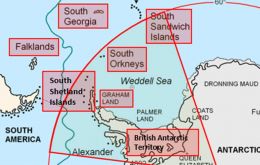
Due to an administrative oversight in the new Falkland Islands Communications Ordinance implemented way back in 2017, new VP8 licenses for use in the former Falkland Islands Dependencies have not been available for some years now.
-
Saturday, October 2nd 2021 - 09:17 UTC
Punta Arenas will have its International Antarctic Center following financing of the project

Punta Arenas, as the capital of the Chilean Magallanes Region and Chilean Antarctica, will finally have its International Antarctic Center making the city the logistic hub and gate of access to Western Antarctica, following on the regional council's decision to support and finance the 88 million dollars project as part of the development program for Extreme Zones.
-
Friday, October 1st 2021 - 09:12 UTC
FIG and BAS work together on forthcoming Antarctic summer research season
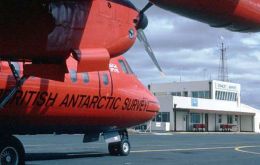
Despite the global pandemic, the strong strategic relationship between the Falkland Islands Government (FIG) and British Antarctic Survey (BAS) has gone from strength to strength. Following the success of the previous austral summer research season, the Falkland Islands is once again positioned to be the gateway for exciting and important Antarctic science over the next six to nine months.
-
Thursday, September 30th 2021 - 12:26 UTC
Argentina involved in juvenile Patagonian toothfish and grenadier research cruise
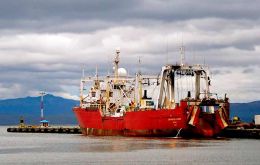
Argentina's INIDEP, National Institute of Fisheries Research and Development has started an assessment cruise of Patagonian juvenile toothfish, (Dissostichus eleginoides) on board the commercial vessel “Centurion del Atlántico”, belonging to Estemar S.A.
-
Thursday, September 23rd 2021 - 09:00 UTC
Chilean Antarctic bases changing energy sources with German support
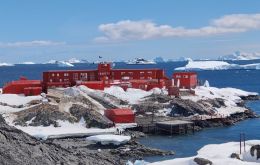
The Chilean Antarctic Institute, Inach, Germany's International Cooperation Agency, GIZ, and the Antarctica Foundation 21 have started working in energy options, assessing alternatives for the Chilean bases in the continent, avoiding CO2 emissions, such as green hydrogen.
